Results
-
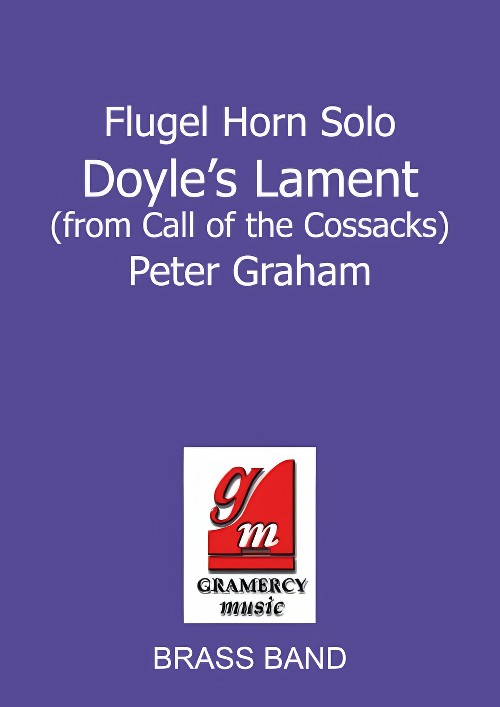 £44.95
£44.95Doyle's Lament (from Call of the Cossacks) (Flugel Horn Solo with Brass Band - Score and Parts) - Graham, Peter
Solo for Flugel Horn (or Cornet Bb); 4th Movement from Call of the Cossacks.
Estimated dispatch 7-14 working days
-
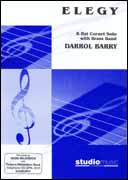 £42.95
£42.95ELEGY (Cornet/Brass Band) - Barry, Darrol
Recorded by Mark Wilkinson with Foden's Richardson Band on Polyphonic CD QPRL221D Sunburst Also available: B flat Cornet (or Trumpet) and Piano edition.
Estimated dispatch 7-14 working days
-
 £118.99
£118.99Elegy I (Brass Band - Score and Parts)
Elegy I 'Jealousy' has been named after John Donne's poem of the same name. This English poet (1572-1631) wrote an entire series of elegies, each with its own theme. Jealousy can trigger various emotions, ranging from disappointment, grief, or regret, to madness and anger. All these emotions have been incorporated into this composition. Jacob de Haan was inspired by three different works of art: a poem (the aforementioned poem by John Donne), a painting by the Norwegian painter Edvard Munch (Jealousy in the Garden) and an old French chanson about jealousy (Je ne l'ose dire) by the sixteenth-century French composer Pierre Certon. The music refers repeatedly to this chanson - sometimes through key notes from the melody that serve as the starting point for new, isolated themes and sometimes through quotations of the original version
Estimated dispatch 7-14 working days
-
 £45.99
£45.99FANFARE BRITANNICA (Brass Band) - Hosay, James L.
This regal and stately fanfare-opener is a sterling new offering for band. Sixteen opening bars of thrilling fanfare lead inexorably to a theme expressing dignified momentum. Frequent but simple meter changes help to make this an interesting and educational piece that both the band and the audience will enjoy. A recap of the opening fanfare brings the piece to an exciting finish that will set a noble yet festive tone for your concert or special event. It even makes a great graduation recessional. Let Fanfare Britannica be the crown jewel of your next performance! Duration: 2:20
Estimated dispatch 7-14 working days
-
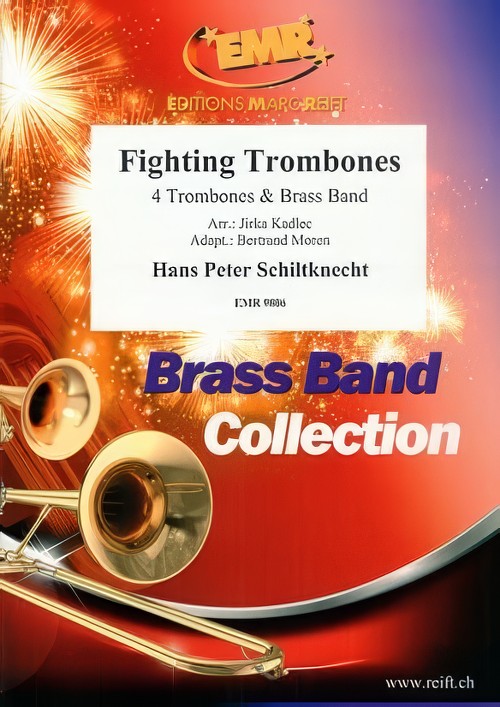 £115.00
£115.00Fighting Trombones (Trombone Quartet with Brass Band - Score and Parts) - Schiltknecht, Hans-Peter - Kadlec & Moren
for 3 or 4 trombonesDuration: 1.30
Estimated dispatch 7-14 working days
-
 £37.95
£37.95FLOWER DUET from 'Lakme' (Delibes/Sparke) (Cornet Duet/Brass Band) - Delibes, Leo - Sparke, Philip
Duet for 2 B flat Cornets (or E flat Soprano and B flat Cornets) & Brass Band
Estimated dispatch 7-14 working days
-
 £50.90
£50.90FORGOTTEN DREAMS (Cornet Carillon with Brass Band) - Anderson, Leroy - Kerwin, Simon
Great antiphonal effect with four or all cornets stood around the band. Grade: Easy/Medium.
Estimated dispatch 7-14 working days
-
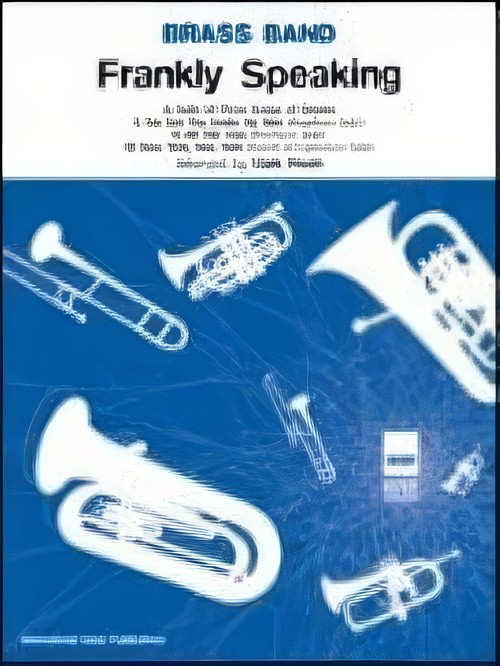 £34.99
£34.99Frankly Speaking (Brass Band - Score and Parts) - Freeh, Mark
Mark Freeh's fine arrangement brings together three classic Sinatra songs in a suite for solo instruments and band: I've Got You Under My Skin (flugel solo), All the Way (trombone solo) and New York, New York (cornet or euphonium solo).Suitable for Advanced Youth/3rd Section Bands and aboveDuration: 5:00
Estimated dispatch 7-14 working days
-
 £54.99
£54.99GAILLARDE (Brass Band) - d'Attaignant, Pierre - Mellaerts, Manu
Galliarde by Pierre Attaignant (1494-1552) is an elegant opening item for those looking for something a little different. It can also be used as a filler or to link two works in a programme. Manu Mellaerts is an authority on the repertoire of this period and has arranged this short, stylish piece while keeping the original renaissance spirit in mind.
Estimated dispatch 7-14 working days
-
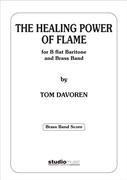 £64.95
£64.95HEALING POWER OF FLAME, The (B flat Baritone Solo with Brass Band) - Davoren, Tom
As the progressive rock band Transatlantic quote in their song of the same name, We All Need Some Light. Since the dawn of man, fire has been our most essential companion. A steadfast provider, it is a source of comfort, assurance and safety. On the other hand though, fire is one of natures most brutal and unpredictable forces; erratic, entrancing, devastating and spectacular. Ones personal 'fire' finds us in a multitude of ways and at once stage or another, everyone will search for The Healing Power of Flame. Duration: 10:00
Estimated dispatch 7-14 working days
